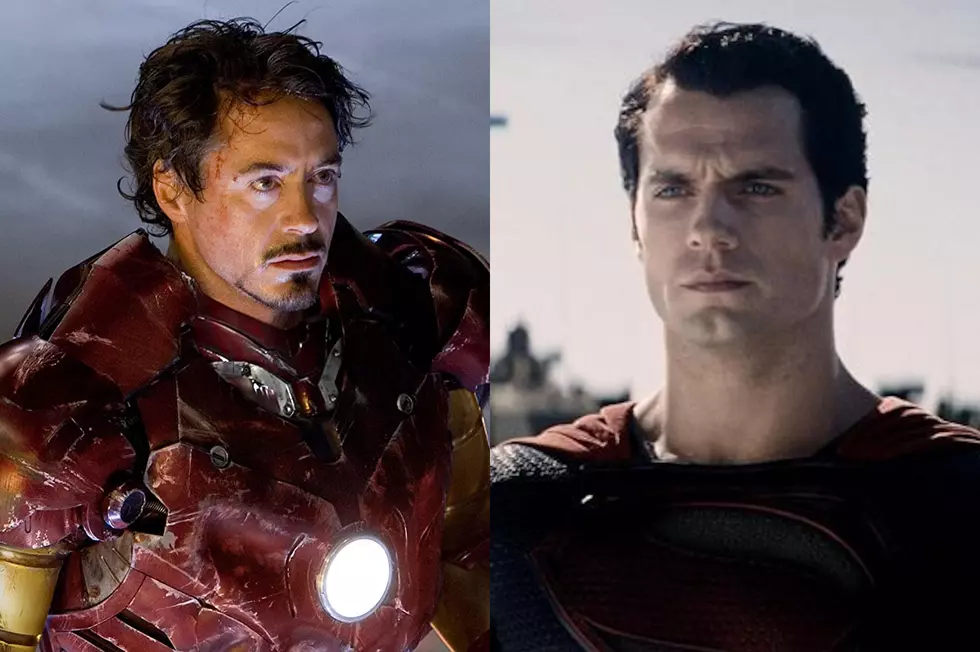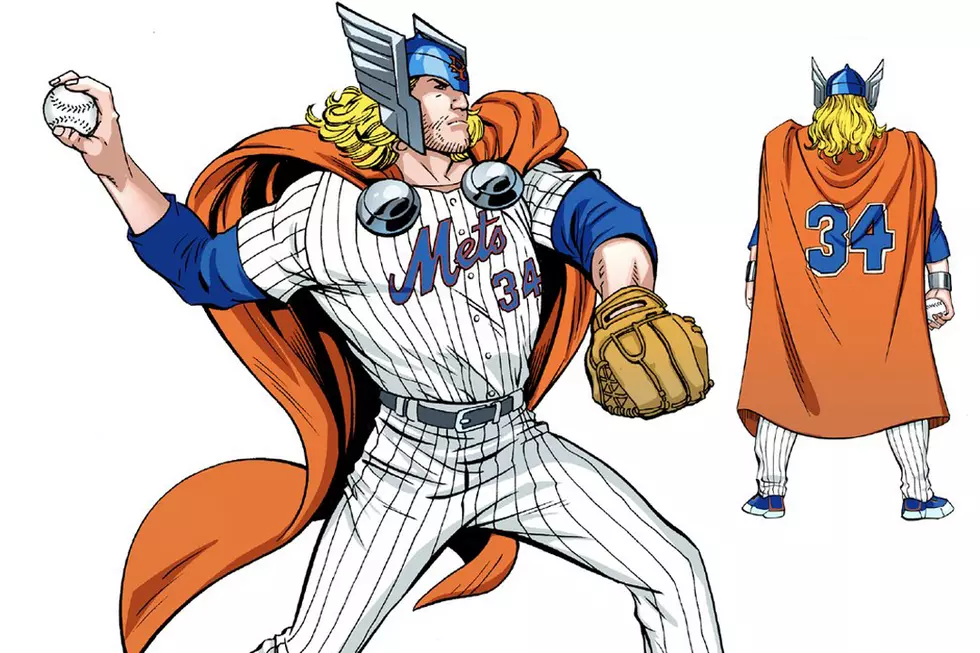
Big Hearted, Black Hearted: Celebrating Warren Ellis
On February 16, 1968 in Essex, England, Warren Ellis materialized fully-formed, flicked a lit cigarette at the world, and went off to write brilliant comics, essays and stories that read like compressed and condensed versions of the man himself, full of all the prescience, bile, and heart that flows out of this creative giant.
It might be a stretch to say Warren Ellis is the only modern comics creator with a genuine cult of personality, but it's a minor one. Since his emergence in the 1990s, he has accrued a rabid following that consumes most of what he produces, squeals with glee at every acerbic rant, and frequently refers to him as "Internet Jesus" and "Stalin" with love and admiration.
As an early adopter of internet technology, Warren Ellis's influence and cultural penetration goes well beyond the world of comics. His esteem as a Lovecraftian horror and science fiction god seems well established; ask somebody if they know Warren Ellis the comics writer, and they might reply with a variation of, "You mean the transhumanist/futurist/media critic/social commentator?" His presence on web forums and social media have spread Ellis's voice and perspective throughout the darkest corners of the web, where terms he originated or popularized --- "futurephone," "interwebs," and "backmatter" --- are used by more than a few who probably haven't even read his work.
But it is his comics work that his reputation is built upon, and he earned it very quickly. Starting through the usual channels in the UK --- small press, fan press, and 2000 A.D. --- Ellis displayed an unrestrained viciousness and propensity for the strange and dark that made even his earliest work notable. Once he entered American comics, he turned heads with Doom 2099 and Excalibur, where he brought a particularly British flair to the U.K.-based mutants, plus a short but highly-acclaimed run on Thor, and an ultra-violent stint on Wolverine.
But anybody who assumed that Ellis would be content to sit on a title and churn out long, comfortable runs was mistaken. Ruins, a bleak counterpoint to Kurt Busiek and Alex Ross' Marvels, envisioned a horrid dystopia for the capes that seemed to genuinely shock some readers at the time. Neither a superhero traditionalist --- he didn't grow up reading superhero comics --- nor interested in work without teeth, Ellis has consistently sought out challenges to himself, his readers, and the industry at large.
Charting the various turns in his career, one can practically see him getting bored every few years, seeking out different trials and concocting new provocations. When he transitioned to Wildstorm he threw down a gauntlet with DV8, a nasty piece of teenage agitprop that launched the '90s version of selfish, image-conscious superheroes. After assuming the captain's role on Stormwatch, he transformed Jim Lee's nondescript paramilitary heroes into a treatise on governmental power and corruption that, although it never sold spectacularly, became the foundation around which the rest of the Wildstorm Universe was arranged.
In The Authority, an epic superhero action comic that read like sixties Justice League of America as reimagined by a radical leftist, Ellis co-created with artist Bryan Hitch the "widescreen comic." Characterized by panoramic spectacle and eye-gouging mayhem, The Authority, like much of what Ellis writes, is nonetheless touching and heartfelt. In a reserved, selective way, it's practically effusive.
Ellis's love is typically reserved for the outcasts, the disestablished, the tossed-aside. Those themes of power-worship and the endemic corruption of the establishment fuel much of the work in his career: in The Authority, a gang of leftists superheroes employ incredible violence to create a worldwide liberal authoritarianism that lashes out at any with power who feel they can exert their malign influence on the powerless.
In Planetary, the superheroes are the establishment: a hegemonic group called The Four, based on the Fantastic Four, seeks to keep all the world's wonders to themselves. The heroes are pulp-inspired outsiders out to reclaim the progress that rightfully belongs to mankind at large. In Transmetropolitan, probably Ellis's signature work, the drug-addicted and unstable Spider Jerusalem weaponizes journalism to tear down the untouchable.
Ellis's heroes are frequently world-weary cynics who feel isolated from humanity and yet protective of it. They believe in progress, science, equality of race, gender, and sexuality; freedom and human rights. And these are all values that they are willing to kill to promote. The themes of civic responsibility and protection of others --- through violence if necessary --- appears in various permutations all throughout his career: Moon Knight, Iron Man, Hellblazer, Global Frequency, and Fell.
Never afraid to self-criticize, Ellis often explores these power struggles from other perspectives as well, examining the other side of progress, counterculture, revolution, and aggressive leftism. In books like Docktor Sleepless (which is sadly unfinished), FreakAngels, Injection, Orbital, and Black Summer, he looks at the other side of the coin: the consequences of scientific discovery, the aftermath of progress, and the failures of counterculture, revolution, and aggressive leftism.
But any casual inspection of his comics, novels, essays, blog-posts and missives reveals where Ellis confidently stands. Early in 2017, he noted in his newsletter, "it is always correct to punch Nazis. They lost the right to not be punched in the face when they started spouting genocidal ideologies that in living memory killed millions upon millions of people. And anyone who stands up and respectfully applauds their perfect right to say these things should probably also be punched, because they are clearly surplus to human requirements."
Punches don't solve every problem. Even Warren Ellis would have to admit that.
Sometimes you need a balcony.
More From ComicsAlliance




![Jenny Sparks Enters The Scene In Ellis And Davis Hunt’s ‘The Wild Storm’ #3 [Preview]](http://townsquare.media/site/622/files/2017/03/TWS_Cv3_000.png?w=980&q=75)




